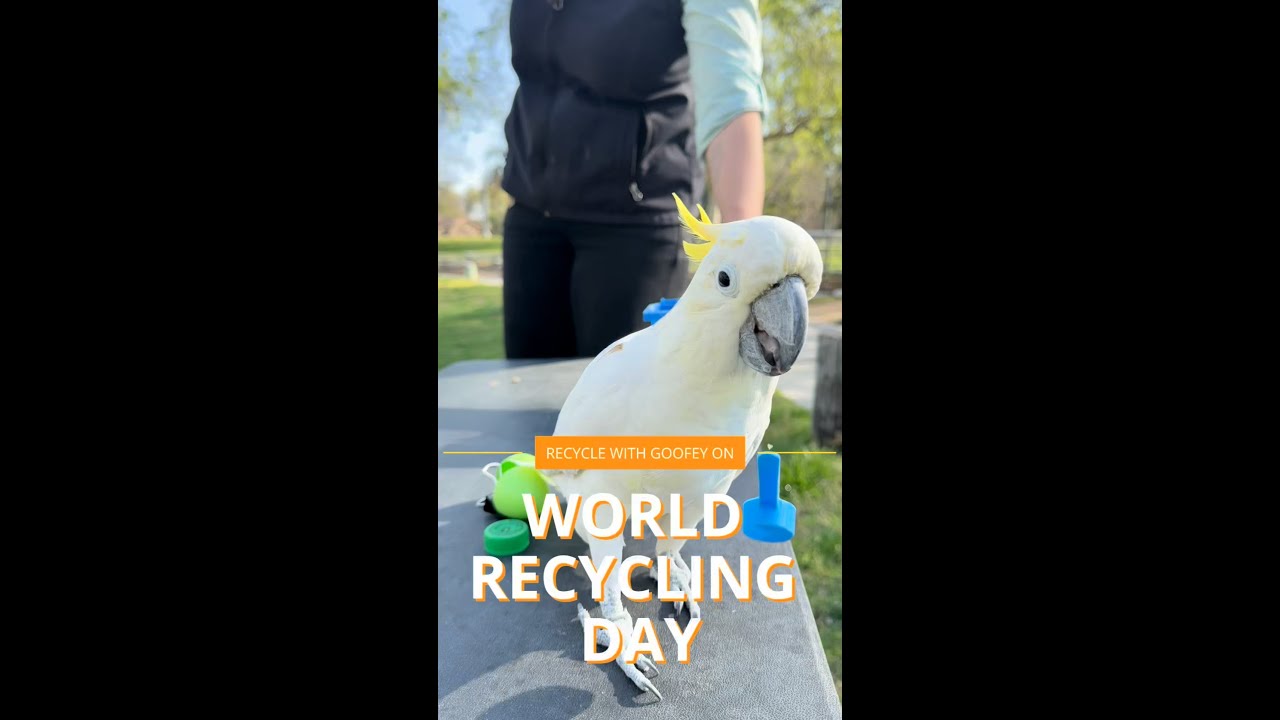- The significance and global impact of Happy World Recycling Day, including its connection to wildlife conservation and ecological sustainability.
- The role of zoos and zoo management in promoting recycling and conservation efforts, and their influence on public awareness.
- A detailed analysis of the symbiotic relationship between recycling practices and the preservation of animal habitats.
- Educational insights into how individual actions, inspired by observances like Happy World Recycling Day, contribute to broader conservation initiatives.
- Practical examples of successful recycling and waste management practices in zoos and wildlife conservation efforts.
Happy World Recycling Day serves as an important annual reminder of our shared responsibility for sustainable actions to protect the environment. Originally designed to emphasize the necessity of recycling to save our planet’s resources, this day plays a crucial role in wildlife conservation by fostering sustainable practices. Recycling limits waste and decreases habitat destruction, further enabling the survival of numerous species. The connection between recycling and wildlife health is profound, as sustainable waste management can reduce pollution and conserve vital natural ecosystems.
Zoos play a pivotal role in raising awareness of the importance of recycling. As conservation hubs, zoos are in a unique position to educate the public about environmental stewardship. By adopting robust recycling programs, zoos do not only set benchmarks in sustainability but also demonstrate tangible conservation efforts to their visitors. Through interactive exhibits and educational programs, zoos convey crucial information about the positive impacts of recycling on wildlife preservation. Zoo management, through strategic planning and community engagement, helps to amplify this message far beyond the confines of their immediate environment.
The interaction between recycling practices and the conservation of animal habitats illustrates an essential mutual relationship. By reducing waste that pollutes soil and waterways, recycling aides in maintaining healthier ecosystems for both terrestrial and aquatic species. This, in turn, facilitates biodiversity by ensuring that native species thrive in cleaner habitats. For instance, recycling plastic prevents harmful materials from entering oceans where they can severely damage marine life. This exemplifies how conscientious consumer choices and waste management directly affect the health of ecosystems worldwide.
Individuals hold significant power to effect change through daily recycling actions inspired by events like Happy World Recycling Day. By increasing public understanding of the impact of waste on habitats, people become more motivated to participate in recycling initiatives. When individual actions are combined on a large scale, the effect magnifies, resulting in substantial improvements in resource conservation. Educational campaigns contribute to this awareness, promoting the notion that every recycled item is a small step toward larger environmental goals.
Practical applications of successful recycling initiatives, particularly in zoos and wildlife refuges, provide powerful examples of conservation in action. Many zoos have implemented comprehensive recycling programs that manage not only traditional recyclables like paper and plastic but also organic waste and electronic devices. For example, creative recycling projects can transform old zoo materials into enriching animal enclosures, while some facilities harness renewable energy sources to decrease their carbon footprint. Through these detailed practices, zoos provide a living example of efficient sustainability and inspire their visitors to continue recycling efforts at home.
Happy World Recycling Day is integral to environmental education and action, particularly in its immense ecological implications. By showcasing the important intersection of recycling and habitat conservation, we are reminded of the critical role these practices play in safeguarding biodiversity. This day encourages communities to embody the principles of sustainability and translate them into daily habits that can lead to substantial positive environmental changes. As we learn and become more engaged with the effects of recycling, it propels both immediate action and ongoing dedication to conserving Earth’s resources for future generations.
*****
Source Description
It’s World Recycling Day! Let’s team up with Goofey and help support a cleaner, healthier planet by recycling. To learn more about local recycling programs, visit https://irecyclesmart.com. Together, let’s make Earth greener!


